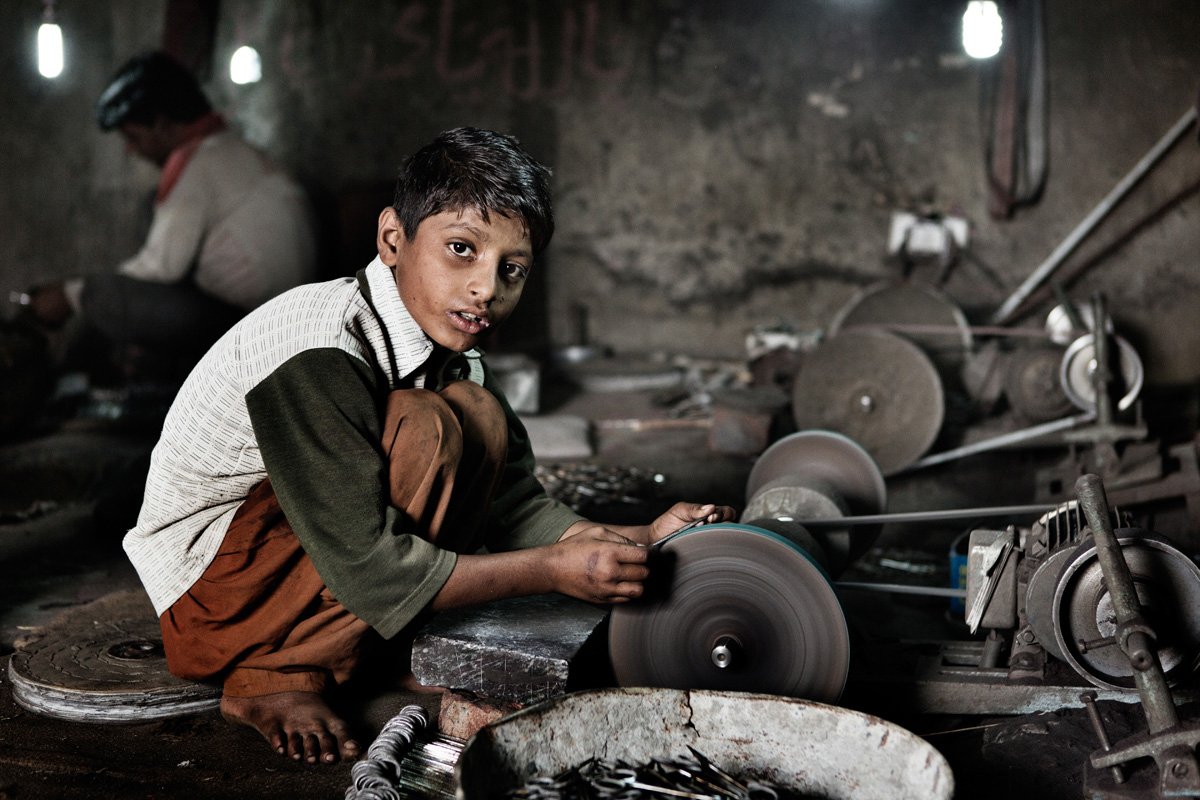About Author:
Writer is a post-graduate student and a social activist working toward population welfare and child protection.
Children are like roses and roses are best
suited in the gardens and parks. Similarly, the children look good in the
schools and playgrounds not in the garages and factories. Unfortunately, in
Pakistan most of the children do not attend school. According to the recent
global competitiveness report issued by UN, Pakistan has the second highest
number out of school children approximately 25 million. The major reason behind the low enrollment of
the children is poverty. Most of the poor families in rural Pakistan prefer to
send their children to work instead of allowing them to get education. These
children either work in the agricultural lands or at the shops and factories in
the nearby towns. The wages offered to these children are very low and they are
also mistreated by their employers most often. Some of these children also
become the victim of child abuse.
The government has introduced various
incentives in order to improve the enrollment of the children into schools but
has failed completely in improving the enrollment rate. According to the article
25-A, the government is required to provide quality compulsory education to the
children in the age group of five to sixteen years. But unfortunately, the
presence of the children on roads selling various items, in garages and in
factories suggests that government has failed to fulfill its responsibility. There are thousands of government schools in
Pakistan but most of them are inefficient. Many of these schools are without
building and other infrastructural facilities. The quality of education being
provided in these schools is also inferior. Furthermore, the media reports
about the condition of public schools in our country are also sufficient to
convince the parents to not to send their children to schools. Therefore,
instead of sending their children to the government schools, the parents send
them to work. Most of the children are sent by their parents to the big cities
of Pakistan for work such as Karachi, Lahore and Islamabad and Faisalabad. They
have to live alone and bear their complete expenses as well as save some amount
for their parents.
"It is the joint responsibility of the government as well as the parents to save the future millions of children who could prove to be an asset for our country."
The population growth in our country has also contributed in the growing trend child labour. Many of the parents who have more than three children cannot afford to send their children to schools. Therefore, they prefer to send them to work so that they could not only feed themselves but also save something for them. The parents might get advantage from their children by sending them to work in the short run but they must understand that they are spoiling the future of their children. Education does not only create favourable earning opportunities but it also broadens the vision of a person. The parents should not only consider the financial motive behind education but they should also understand that quality education will make their children better citizens as well.
Most of the small and medium sized
companies employ child labour as it readily available. Similarly, it is not
only cheap but easy to control as well. These companies operate through
contractors who provide them child labour from the underprivileged areas of the
country. The companies require these children to work late hours and that too
under very harsh conditions. The current labour laws of our country require
these companies to avoid child labour but by bribing the government officials,
these companies continuously engage in the child labour.
It is the joint responsibility of the
government as well as the parents to save the future millions of children who
could prove to be an asset for our country. The government should provide
stipends and cash transfers to the needy and meritorious students. Similarly,
the poor families should send their children to the government schools if they
cannot afford to send them to the private schools. The government should also
build partnership with the NGO’s to improve the state of the public schools.
The current government has started a scheme under which the government school
is handed over to the NGO which runs it. These types of initiatives will
certainly improve the condition of the private schools. Furthermore, the
government should also ensure that the laws related to child labour are
implemented in letter and spirit and no company whether big or small is allowed
to indulge in child labour. Moreover, the government should also increase the
budget for the education so that more and more children could be sent to
schools.

